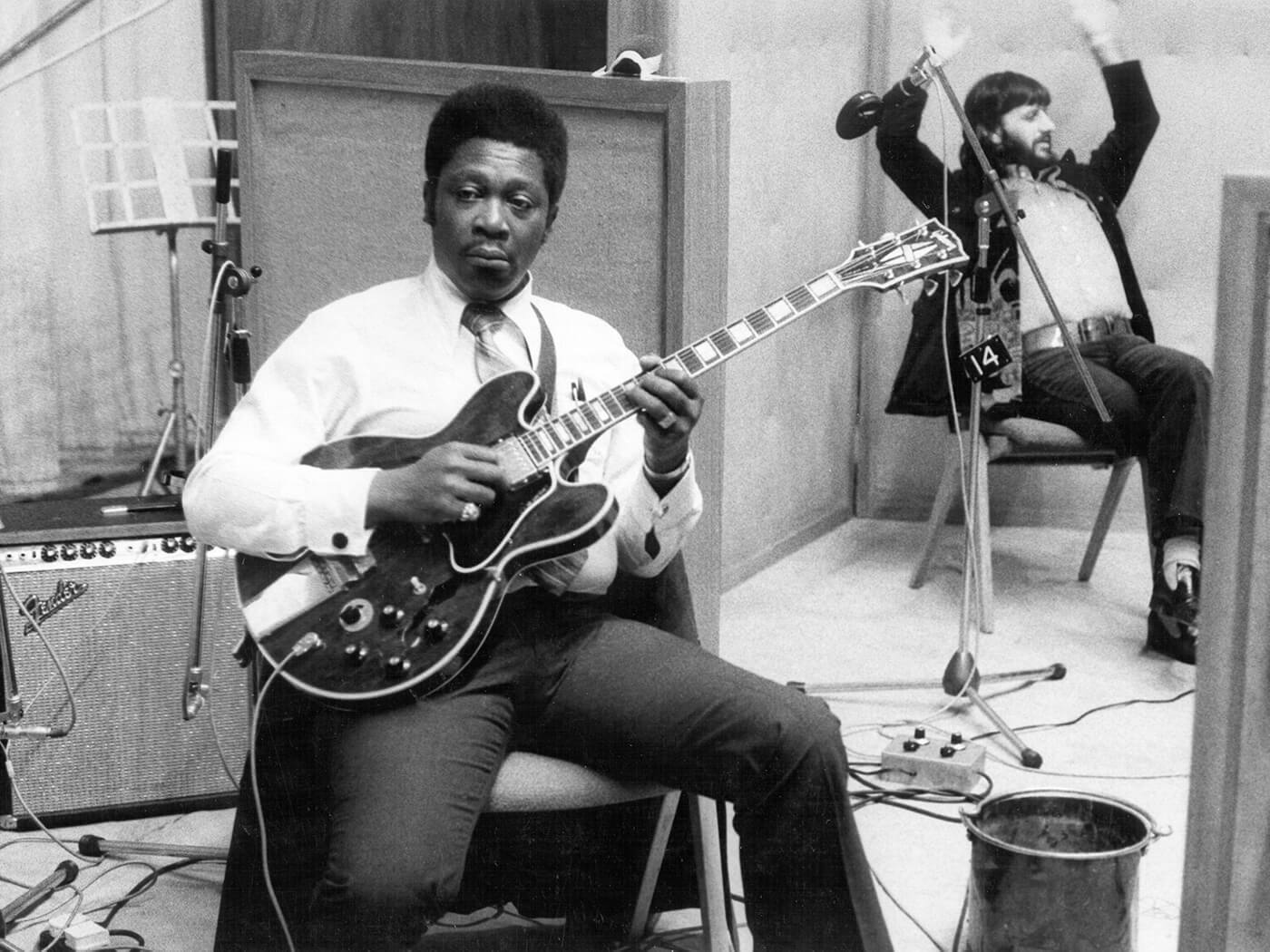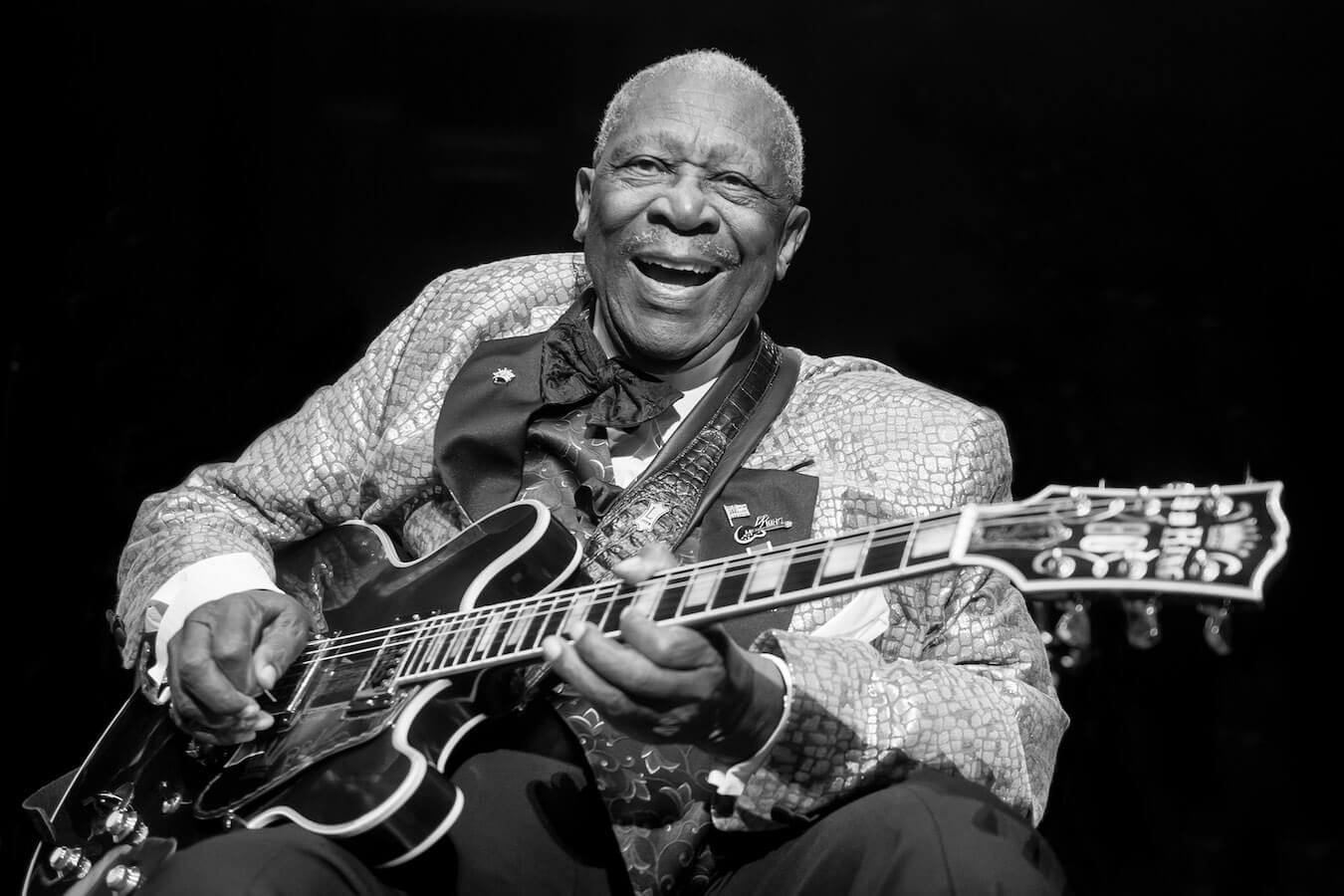B.B. King's guitar, famously named "Lucille," has become an enduring symbol of blues music and the legendary musician's career. The story behind the name and the significance of this guitar transcends mere musical instruments, representing a deep emotional connection between an artist and his craft. In this article, we will delve into the history, impact, and legacy of B.B. King's beloved guitar, exploring why it holds such a special place in the world of music.
B.B. King, often hailed as the "King of the Blues," revolutionized the genre with his unique style and unmatched talent. Central to his sound was his guitar, which he affectionately named "Lucille." This guitar was more than just an instrument; it was a companion that helped shape his distinctive sound and solidify his place in music history.
Throughout this article, we will explore the fascinating story behind the name "Lucille," the significance of B.B. King's guitar in his performances, and its lasting influence on the music industry. Whether you are a fan of blues music or simply curious about the history of legendary instruments, this article will provide a comprehensive look into the life and legacy of "Lucille."
Read also:Jerry Yan Married A Deep Dive Into The Life And Love Story Of The Iconic Director
Table of Contents
- Biography of B.B. King
- The Origin of the Name "Lucille"
- Types of Guitars Used by B.B. King
- Lucille's Significance in B.B. King's Career
- Sound and Style: How Lucille Shaped B.B. King's Music
- Iconic Performances Featuring Lucille
- The Legacy of Lucille in Blues Music
- Lucille in the Collectors' Market
- Impact on Modern Guitarists
- Conclusion
Biography of B.B. King
Early Life and Career
Riley B. King, better known as B.B. King, was born on September 16, 1925, in Itta Bena, Mississippi. Growing up in a humble environment, King was exposed to the blues from an early age, influenced by the music of artists like Blind Lemon Jefferson and Lonnie Johnson. His journey into music began with singing in church choirs before transitioning to playing the guitar.
Key Achievements
B.B. King's career spanned over six decades, during which he earned numerous accolades, including 15 Grammy Awards and induction into the Rock and Roll Hall of Fame. His contributions to the blues genre earned him the title "King of the Blues." Below is a brief overview of his key achievements:
- Inducted into the Blues Hall of Fame in 1980
- Recipient of the Presidential Medal of Freedom in 2006
- Named one of the "100 Greatest Guitarists of All Time" by Rolling Stone
| Full Name | Riley B. King |
|---|---|
| Date of Birth | September 16, 1925 |
| Place of Birth | Itta Bena, Mississippi |
| Profession | Blues Guitarist, Singer, Songwriter |
| Claim to Fame | King of the Blues, "Lucille" Guitar |
The Origin of the Name "Lucille"
The name "Lucille" has a fascinating backstory that adds depth to its significance. In 1949, while performing at a dance hall in Twist, Arkansas, a fire broke out during the show. B.B. King rushed back into the burning building to retrieve his beloved guitar, risking his life in the process. Later, he learned that the fire had been caused by two men fighting over a woman named Lucille. To remind himself of the dangers of jealousy and violence, King named his guitar "Lucille" as a tribute to that fateful night.
Types of Guitars Used by B.B. King
Gibson ES-335
Throughout his career, B.B. King primarily used Gibson guitars, with the ES-335 being one of his most favored models. Known for its semi-hollow body design, the ES-335 provided the rich, warm tone that became synonymous with King's sound.
Gibson ES-355
Another iconic guitar in B.B. King's collection was the Gibson ES-355. This model featured advanced electronics and a more luxurious build, making it a favorite for his later performances. Both guitars contributed significantly to the development of his signature tone.
Lucille's Significance in B.B. King's Career
Lucille was more than just a guitar; it was a symbol of B.B. King's dedication to his craft. The emotional connection he had with his instrument translated into every note he played, creating a bond that resonated with audiences worldwide. This connection helped define his style and made him one of the most influential blues guitarists of all time.
Read also:Kody Brown Sister Wives News The Latest Updates And Insights
Sound and Style: How Lucille Shaped B.B. King's Music
B.B. King's unique playing style, characterized by his expressive vibrato and bending techniques, was heavily influenced by the capabilities of his guitar. Lucille's tone allowed him to convey deep emotion through his music, earning him a reputation as a master storyteller through his instrument.
Iconic Performances Featuring Lucille
Live at the Regal
One of B.B. King's most celebrated performances, "Live at the Regal," showcased the power of Lucille in action. Recorded in 1964, this album remains a staple in blues music and highlights the synergy between King and his guitar.
Appearing on "The Tonight Show"
B.B. King's appearances on "The Tonight Show" with Johnny Carson introduced his music to a broader audience, further cementing Lucille's place in pop culture. These performances demonstrated the timeless appeal of his sound and the enduring influence of his guitar.
The Legacy of Lucille in Blues Music
Lucille's legacy extends beyond B.B. King's career, influencing countless musicians and shaping the evolution of blues music. Her name has become synonymous with excellence in guitar craftsmanship and serves as an inspiration for aspiring guitarists worldwide.
Lucille in the Collectors' Market
Guitars associated with B.B. King, particularly those named "Lucille," are highly sought after by collectors. Their historical significance and connection to one of the greatest musicians of all time make them invaluable pieces of music history.
Impact on Modern Guitarists
B.B. King's influence on modern guitarists cannot be overstated. Many contemporary artists cite him as a major inspiration, citing his mastery of Lucille as a key factor in their own development as musicians. His legacy continues to inspire new generations of blues enthusiasts.
Conclusion
The name of B.B. King's guitar, "Lucille," represents much more than just an instrument. It symbolizes the profound connection between an artist and his craft, as well as the emotional depth conveyed through music. From its humble beginnings in a Twist, Arkansas dance hall to its status as a cultural icon, Lucille has left an indelible mark on the world of blues music.
We invite you to share your thoughts and experiences with B.B. King's music in the comments below. For more articles on legendary musicians and their instruments, explore our website further. Thank you for reading, and may the spirit of Lucille continue to inspire generations to come!

